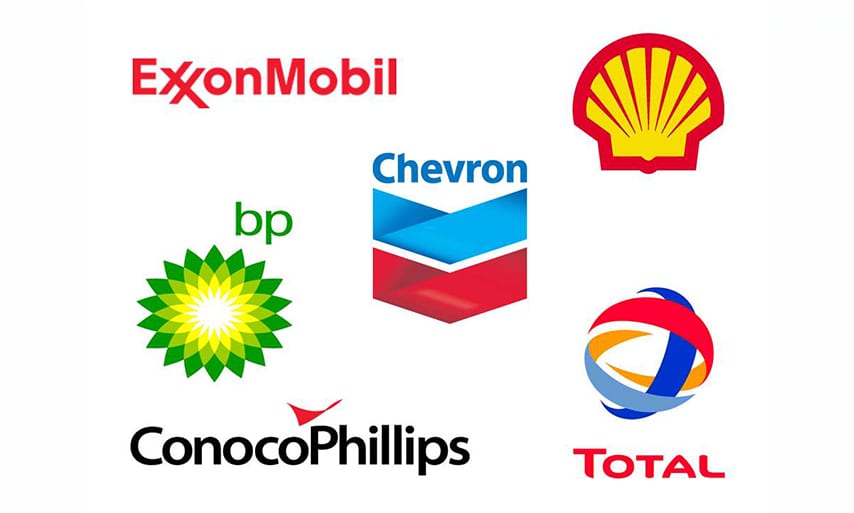The Big Oil Super-majors are the six to eight companies which oil analysts utilize to talk about the world’s biggest publicly owned gas and oil corporations. They are often just called the super-majors, oil majors, or big oil. Today’s super-majors are the following: British based BP plc and Royal Dutch Shell plc, American based ExxonMobil Corporation and Chevron Corporation, Italian based ENI SpA, and France based Total SA. Besides these six companies, sometimes American ConocoPhillips is included in the list of the Big Oil Super-majors, though less often since they spun off their downstream operations.
This industry is often described by the phrase Big Oil much like similar industries which only a couple of enormous producers control. Big Steel is another such example. The phrase became popular in the latter years of the 1960s when “Big Oil” appeared everywhere in print. The phrase today specifically relates to the seven super-majors. It conspicuously leaves out the OPEC oil firms and the national country state producers, even though today they bear a far larger role in the manipulation of oil prices than the Big Oil Super-majors do. There were two different state owned Chinese oil firms, Sinopec and CNPC which boasted larger revenues in 2013 than any of the super-majors besides Royal Dutch Shell.
The Big Oil Super-majors have a history which stretches back to the original “Seven Sisters.” These seven Anglo-American oil firms had combined their powers into forming the “Consortium for Iran” cartel. This allowed them to near-control the world’s petroleum industry from the decades of the middle 1940s through the early 1970s. This group dominated approximately 85 percent of all the oil reserves on earth up through the 1973 oil crisis.
It was in the decade of the 1990s that the famed Big Oil Super-majors started to appear. Because oil prices had fallen dramatically, this caused a flurry of merger and acquisition activity in the industry. The new super-majors were attempting to boost their economies of scale, to lower the enormous cash reserves by reinvesting them, and to hedge their bets against wildly gyrating volatility within the world oil markets.
There were several important acquisitions and mergers of the gas and oil major companies which occurred from 1998 through 2002. These included Exxon’s mega merger with Mobil that led to the creation of ExxonMobil in 1999, Chevron’s takeover of Texaco in 2001, and the combination of Conoco Inc. and Phillips Petroleum Company to form ConocoPhillips in 2002. BP also acquired both Amoco and ARCO in 1998 and 2000, respectively. France’s Total merged in 1999 with Petrofina and then in 2000 with Elf Aquitaine to create the newly named Total S.A.
This resulted in the creation of among the biggest international and multinational corporations on the planet earth per the Forbes Global 2000 list. By 2007, all of the six Big Oil Super-majors were listed in the top 25 largest corporation in the world. In 2011, the largest of the Big Three by market capitalization, profits, and cash flow was ExxonMobil, though it was closely followed by both Royal Dutch Shell and BP.
Today’s Big Oil Super-majors only control about six percent of all worldwide gas and oil reserves. At the same time, around 88 percent of the world’s gas and oil reserves are held by the state owned and run oil companies as well as the OPEC cartel companies, mostly found within the region of the Middle East. The London based newspaper Financial Times sometimes calls these “The New Seven Sisters.” They refer to the new group of the most powerful gas and oil national companies in the world today. Their list
includes Gazprom of Russia, CNPC of China, Petrobras of Brazil, National Iranian Oil Company, Saudi Aramco, PDVSA/Citgo of Venezuela, and Petronas of Malaysia.
Source: Herold’s Financial Dictionary



